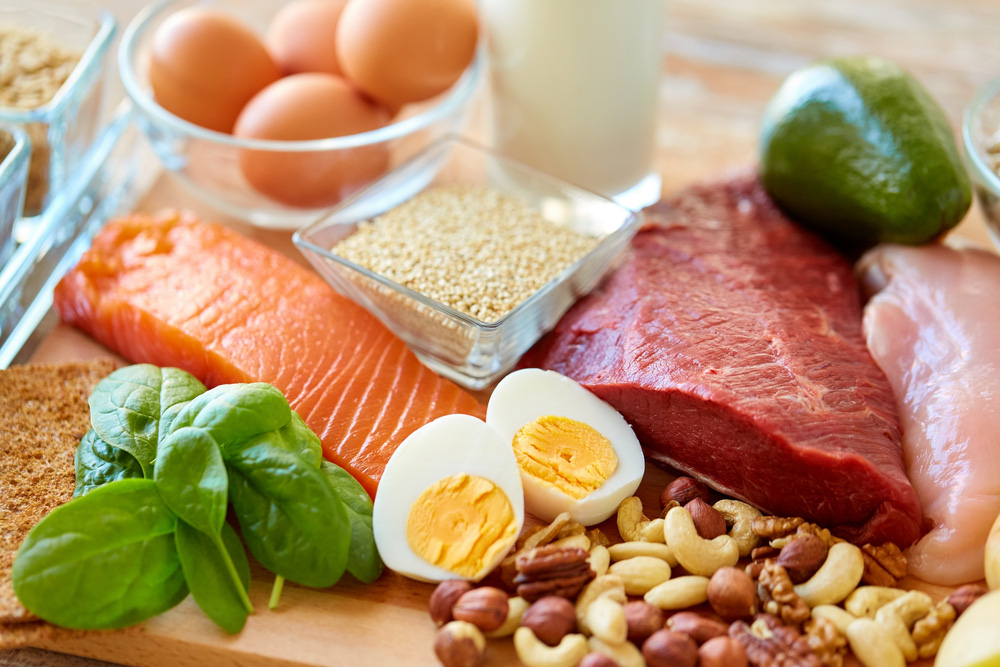
A high-protein diet boosts metabolism and reduces cravings - Photo: British Nutrition Foundation
If you're aiming to lose weight, try eating 1–1.5 grams of protein per pound of body weight per day, especially high-protein, low-calorie foods, according to Verywell Health.
Protein aids weight loss without calorie restriction
A high-protein diet boosts metabolism, reduces appetite, and affects several weight-regulating hormones. This can help you lose weight and body fat, and maintain weight loss long-term.
Protein increases three appetite-suppressing hormones: glucagon-like peptide-1, cholecystokinin, and tyrosine-tyrosine peptide. Protein also reduces ghrelin, a hormone that increases appetite and prompts us to eat.
Because protein increases the hormones that make you feel full and decreases the hormones that make you hungry, it helps you feel full longer. A review of more than 10 scientific studies found that overweight and obese people felt fuller for longer when eating a high-protein diet.
Feeling fuller can also help you reduce your calorie and processed food intake, which can aid in weight loss. When you eat, your body uses extra calories to digest your meal and convert it into energy, a process called diet-induced thermogenesis (DIT).
It takes more energy for your body to process protein than it does for fat or carbohydrates, the other two macronutrients. For every calorie of protein you eat, your body needs about 25% to 30% of its energy to digest that calorie.
This is much higher than the 3% per calorie of fat or the 7% to 8% per calorie of carbohydrates. In other words, after digesting protein, the body will have fewer calories left over to store as fat or excess weight.
Protein slows down metabolism
It's also harder for your body to convert protein into body fat, meaning eating a high-protein diet makes you less likely to store extra fat.
When you eat carbohydrates, your body can convert food into fat with about 80% efficiency. With fat, the efficiency is about 96%. But converting protein into stored fat is only about 66%.
Protein also helps prevent muscle loss. Studies have shown that eating a high-protein diet leads to less muscle loss. Meanwhile, many diets lead to muscle loss, which can lead to a lower overall metabolic rate.
Women need about 46 grams of protein a day and men need 56 grams of protein. However, if you are trying to lose weight, you may need to eat more protein.
To increase your protein intake, focus on eating protein-rich foods that are not processed or high in calories. The best sources of protein are meat and fish.
However, there are many other ways to add protein to your diet, such as eating whole grains, cottage cheese, Greek yogurt, lentils, etc.
Protein bars and protein powders are also quick ways to add more protein to your diet.
However, you should not rely too much on processed foods because it can hinder weight loss.
There are also a few reasons why you might gain weight on a high-protein diet. Typically, each gram of protein has 4 calories. So if you eat too much protein, you may inadvertently increase your calorie intake, contributing to weight gain. For example, 150 grams of protein will have about 600 calories.
If you find yourself gaining weight despite following a high-protein diet, pay attention to your calorie intake.
Ideally, if you increase your protein intake, replace it with carbohydrates or fat. Adding protein and total calories to your diet at the same time can lead to weight gain.
However, remember that weight gain is not always bad. Increasing protein intake can increase muscle mass, which can contribute to weight gain because muscle weighs more than fat.
Source: https://tuoitre.vn/tai-sao-protein-quan-trong-trong-viec-giam-can-20240628091841324.htm


![[Photo] Hundred-year-old pine trees – an attractive destination for tourists in Gia Lai](https://vstatic.vietnam.vn/vietnam/resource/IMAGE/2025/4/17/25a0b7b629294f3f89350e263863d6a3)
![[Photo] North-South Expressway construction component project, Bung - Van Ninh section before opening day](https://vstatic.vietnam.vn/vietnam/resource/IMAGE/2025/4/17/ad7c27119f3445cd8dce5907647419d1)
![[Photo] General Secretary To Lam attends conference to meet voters in Hanoi city](https://vstatic.vietnam.vn/vietnam/resource/IMAGE/2025/4/17/889ce3da77e04ccdb753878da71ded24)
![[Photo] President Luong Cuong receives Lao Prime Minister Sonexay Siphandone](https://vstatic.vietnam.vn/vietnam/resource/IMAGE/2025/4/17/337e313bae4b4961890fdf834d3fcdd5)

![[Photo] President Luong Cuong receives UN Deputy Secretary General Amina J.Mohammed](https://vstatic.vietnam.vn/vietnam/resource/IMAGE/2025/4/17/72781800ee294eeb8df59db53e80159f)




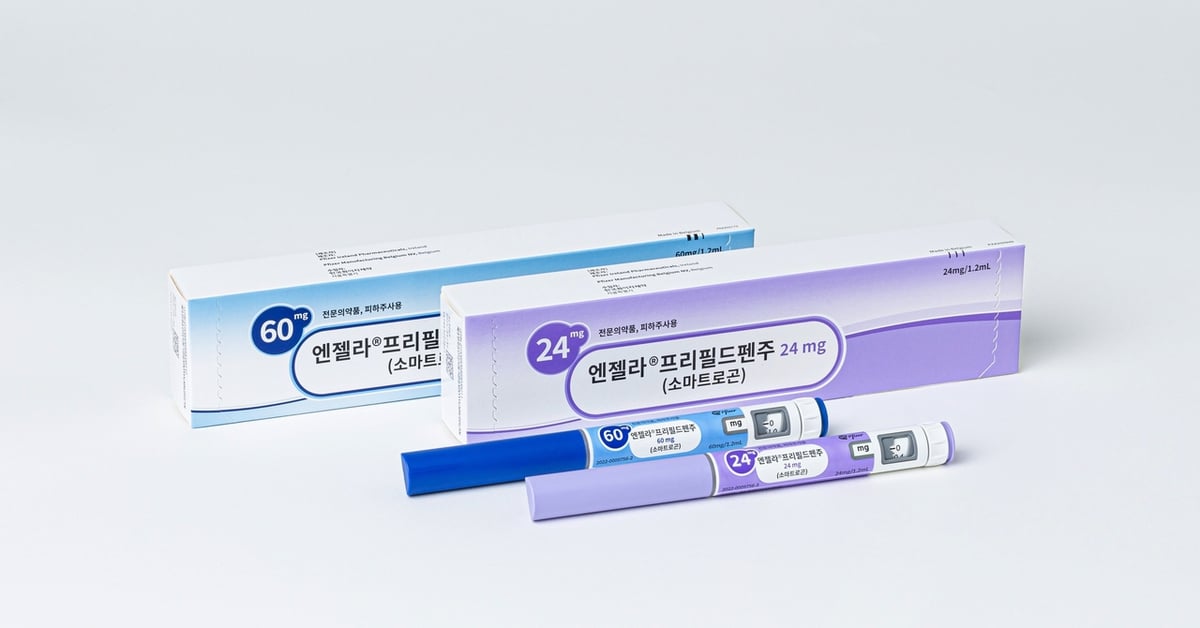

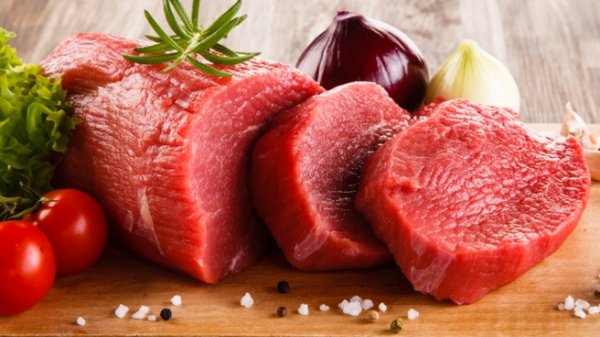


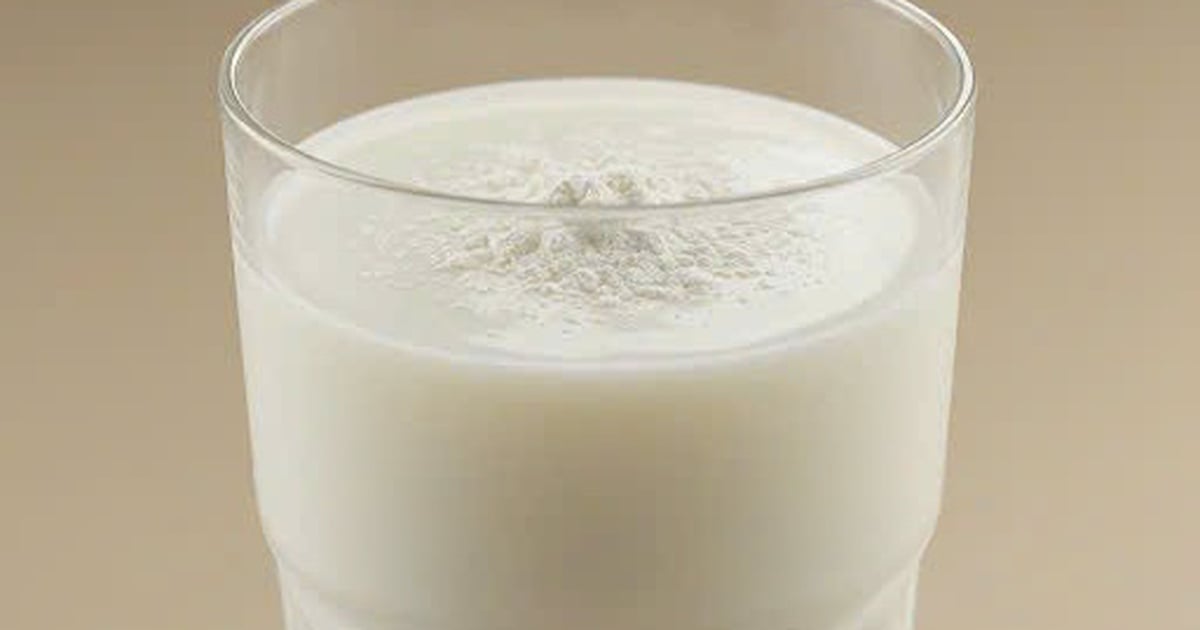
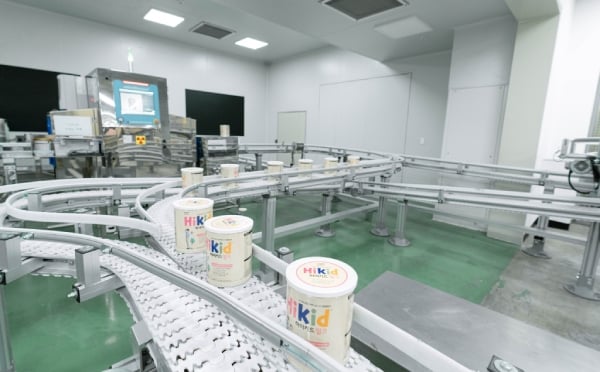
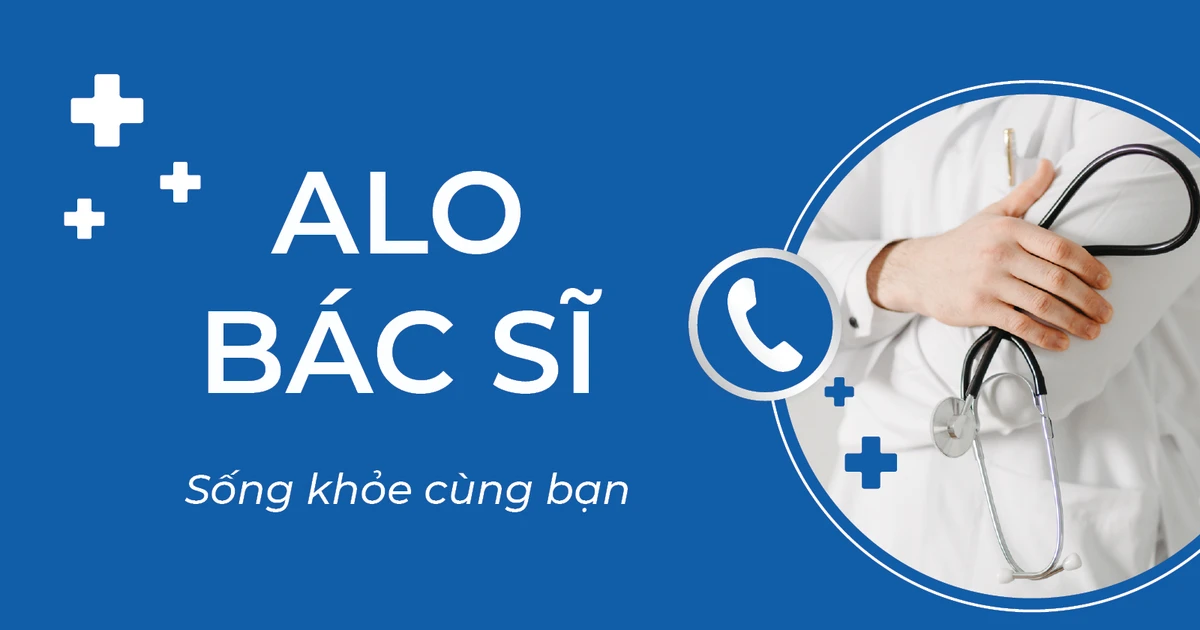
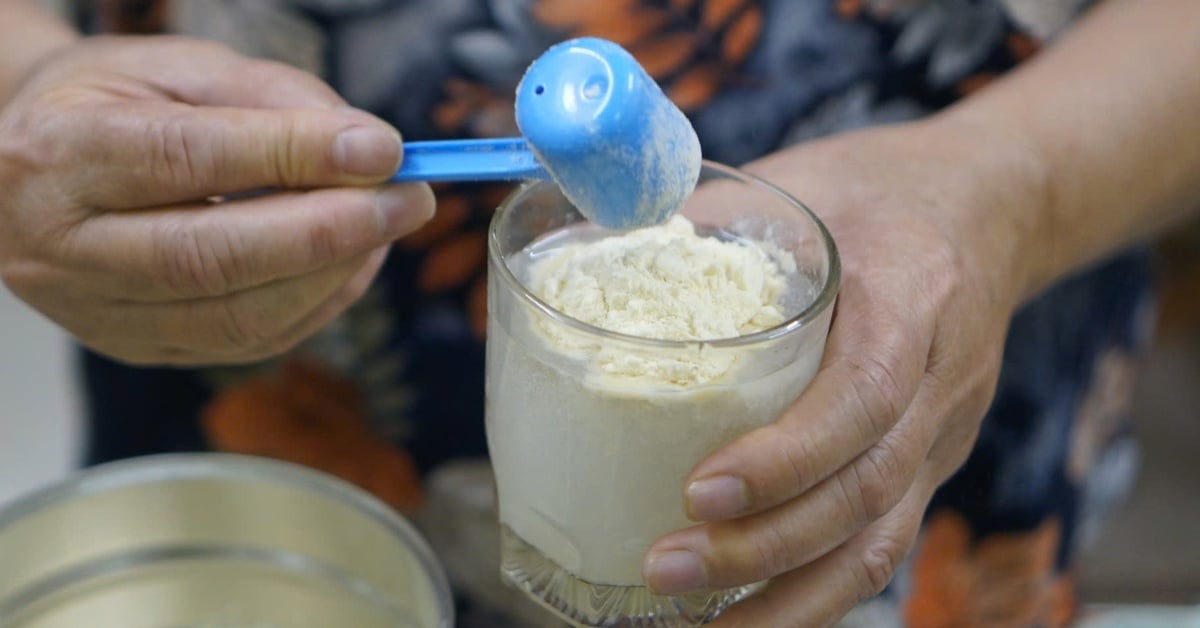
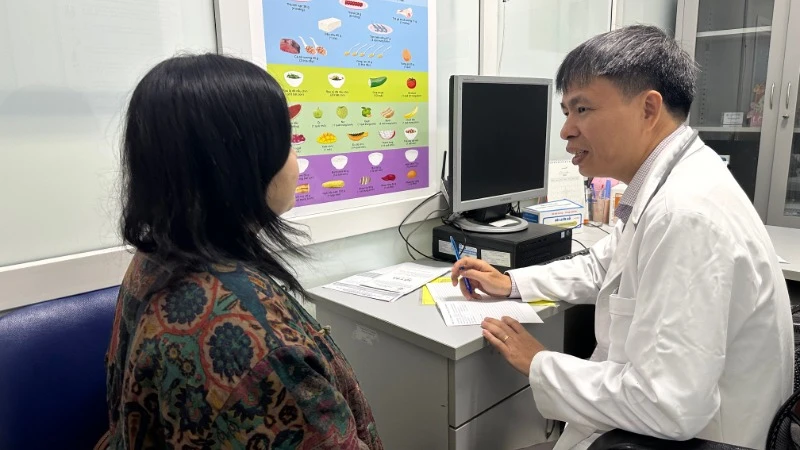






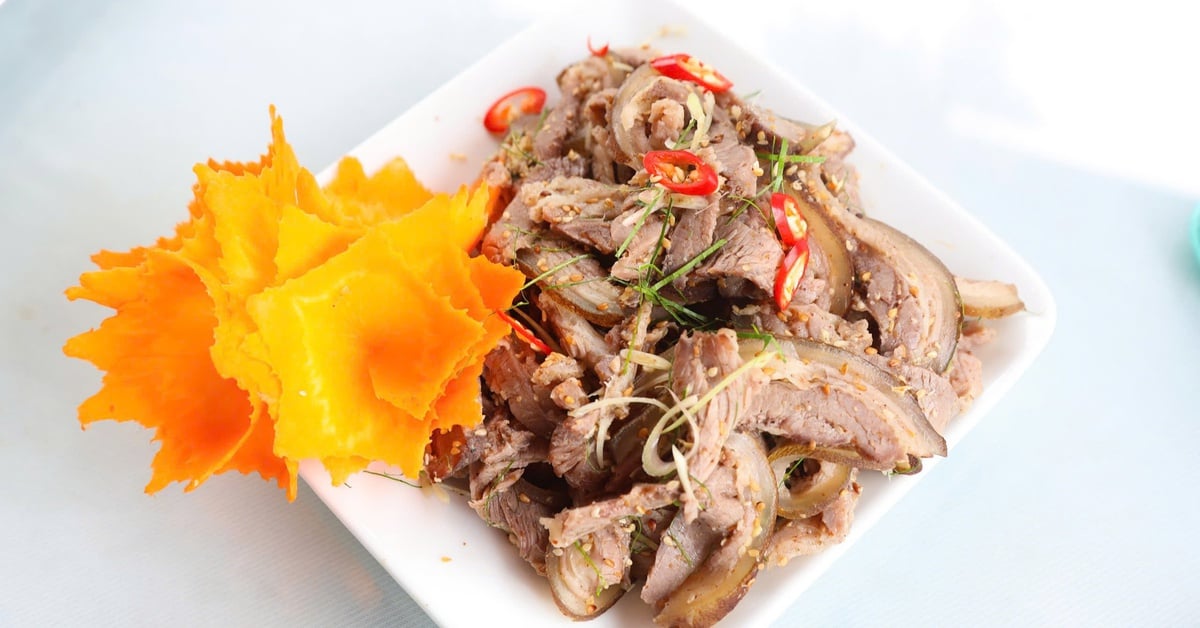


























![[Video] Viettel officially puts into operation the largest submarine optical cable line in Vietnam](https://vstatic.vietnam.vn/vietnam/resource/IMAGE/2025/4/17/f19008c6010c4a538cc422cb791ca0a1)











































Comment (0)